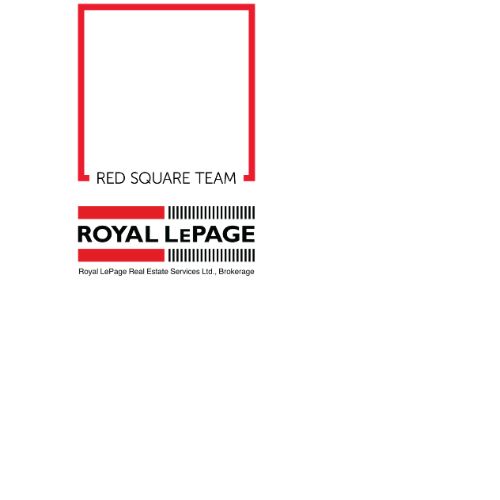When purchasing a home for yourself, you begin the process by looking for specific things that make it the right place for you to build your life at that time. When you are looking for an investment property it is different because an investor is typically looking for something for someone else to live in, and should consider what attributes are most attractive to potential tenants. If the thought of purchasing an investment property has crossed your mind, then please read on as we share our perspectives with you!
Investing in Real Estate
Are you considering investing in residential real estate in Toronto as a means to fund retirement? Have you thought that perhaps it’s a good idea to buy a property now for your kids to eventually live in? Regardless of your motivation, let’s start at the beginning and take a closer look at purchasing an investment property.
Is it for me?
Investing in residential property can be a great way to invest your money in something tangible that will continue to appreciate in value over time. We want to stress that over time means that you will need to be prepared to hold this investment for a longer time horizon to ensure that you will weather market cycles. Read: 10 years or more. If you need liquidity or access to your money within a shorter time frame, we encourage you to speak with a Financial Advisor and not a Realtor.
Have you thought about what you will do with the property? If you’re planning to lease, you should absolutely familiarize yourself with the Residential Tenancies Act, and your responsibilities as a landlord. You should also understand tenant rights thoroughly, as much of the legislation protects the interests of the individual. Be prepared that you will have some great tenants that will take excellent care of your property, but not everyone will maintain their home the way that you expect.
Lastly, you will need a minimum of 20% of the purchase price as your down payment. Borrowing for an investment property is not as easy as borrowing for your primary residence as this is considered by lenders as higher risk. Further, you may also be required to pay a higher rate of interest on funds borrowed. We encourage you to speak with your lender or a Mortgage Broker to determine if this is even an option for you, and to understand the nuances of financing an investment property.
Great, so you’ve decided you want to proceed. What’s next?
Where do I buy?
With any property purchase, location is the factor that likely provokes the most consideration, especially when considering long term growth and renter appeal. Some questions to ask yourself:
- Is it close to transit or major highways? Will the location attract commuters looking for easy access to downtown? Or easy access to leave town?
- Are there future developments that will affect the neighbourhood? Is the area gentrifying? Are there plans to build new housing nearby?
- What amenities are nearby? Libraries, recreation centres, parks, shopping, restaurants, nightlife?
- Who lives here? Is it close to a university or college, where many rentals are occupied by students? Or is it downtown or close to corporate offices where most rentals are occupied by professionals?
There are benefits and drawbacks to many of these decisions. For instance, if a rental property is located close to a post-secondary institution, many of the units may appeal to student renters. Some landlords prefer this as more rental income can be generated with students who have a greater willingness to share bedrooms and common areas. On the flip side, more individuals in a small space will mean more wear-and-tear on the property and potentially a higher risk as students typically have less income to rely upon for rental payments.
What do I buy?
Much of this decision will depend on two things: (i) what’s your budget and (ii) do you want to be responsible for any maintenance.
If you’re looking for a hands-off investment that will essentially take care of itself, we would recommend either a condominium or condo townhouse. These are both lower-maintenance options as condo fees will cover much of the exterior maintenance requirements.
If you’re ok with being a bit more hands-on, including maintaining a building and fixing any issues that come up with tenants then perhaps a freehold property, either single family or multi-residential (more than one rental unit in a building), is better suited to your needs.
Toronto is becoming quite expensive as prices continue to increase, however the inner suburbs offer greater affordability and many great features for those considering either condominium or freehold rental properties.
Will I make money?
The most obvious way to make money in real estate is to buy low, then sit back and watch your property increase in value. This is referred to as capital appreciation. When the property is sold, the differential between these two values (sell price less buy price) is considered a capital gain.Another way to make money in real estate is to lease the property and collect rent. The net amount collected from rent payments less expenses paid out is considered a cash flow. In Toronto, given our high property prices, it’s difficult to find a cash flow positive property, as factors external to real estate markets, such as mortgage rate and down payment amount, also impact cash flow. If you’re interested in exploring this further, we can walk you through examples of how to attain positive cash flow and how the capitalization rate (or the rate of return on an investment property) helps buyers to assess how much income the property is expected to generate and how one property compares to another.
Lastly, if you’re applying the rental income to the mortgage on the property, you are also building equity as you pay down your mortgage.
We do want to caution you that you should speak with an Accountant or tax professional to completely understand how the three factors above can affect your income and individual tax situation. Capital gains are currently taxed at 50% upon disposition of property that is not subject to the primary residence exception. Cash flows are also considered income and are taxable.
We believe making an investment in real estate can be a great choice, but only if it is done wisely. If you’re thinking of purchasing an investment property, let us help you. Please contact us directly, we would be happy to discuss all of your options.
Until next time,
Marcia and Heather


